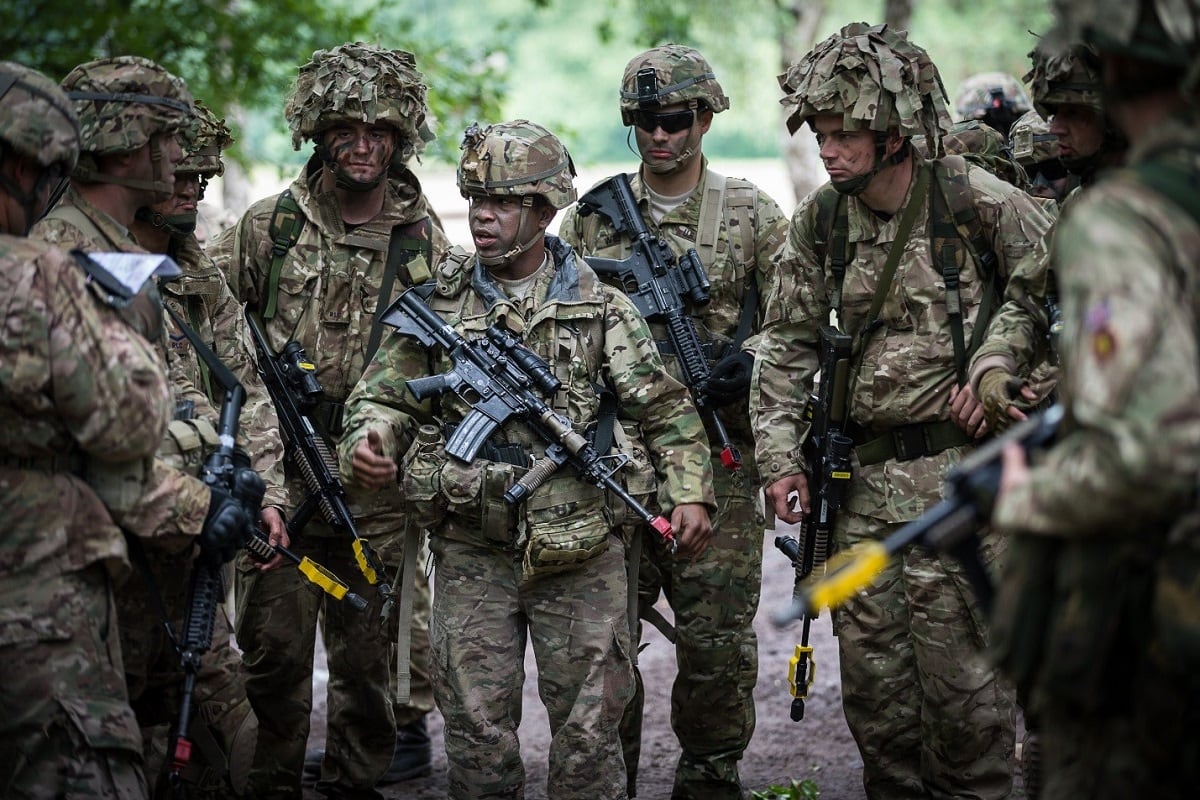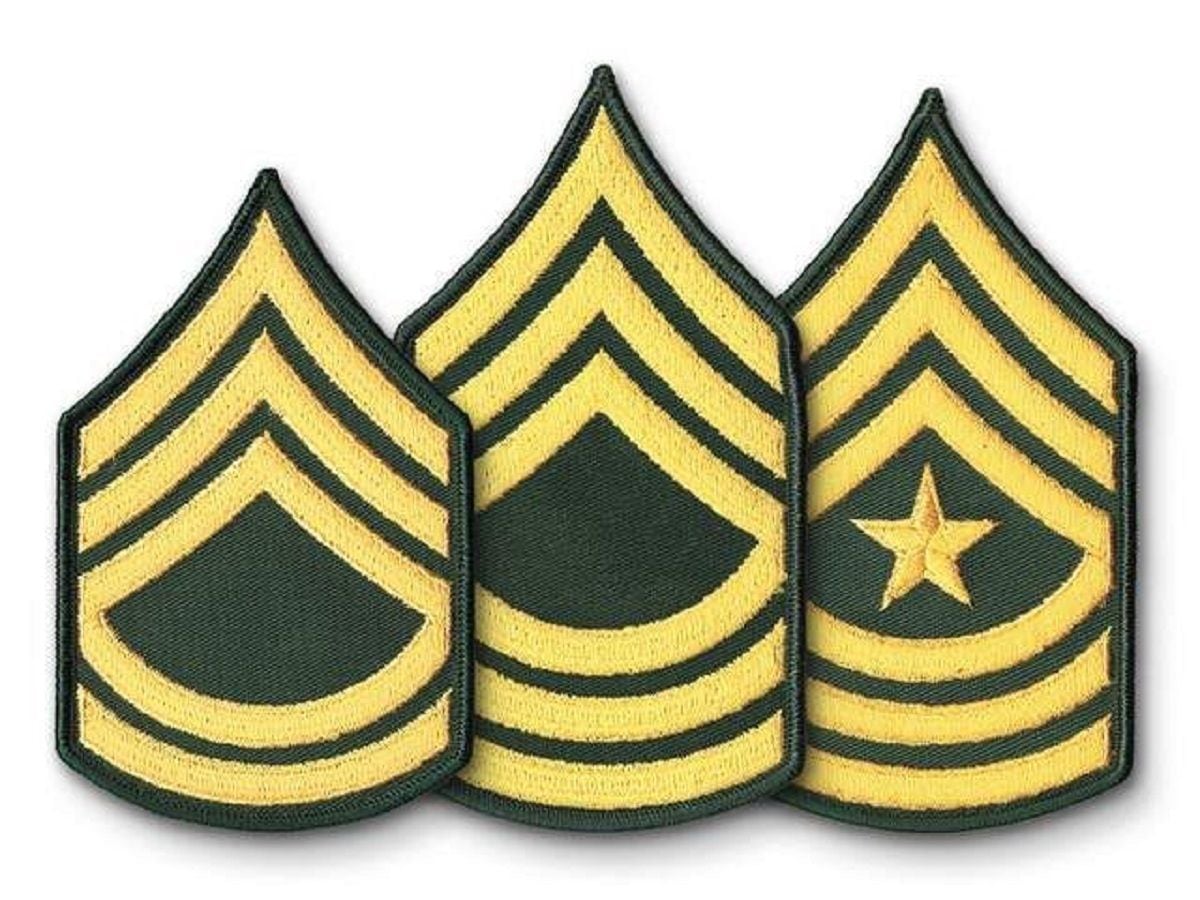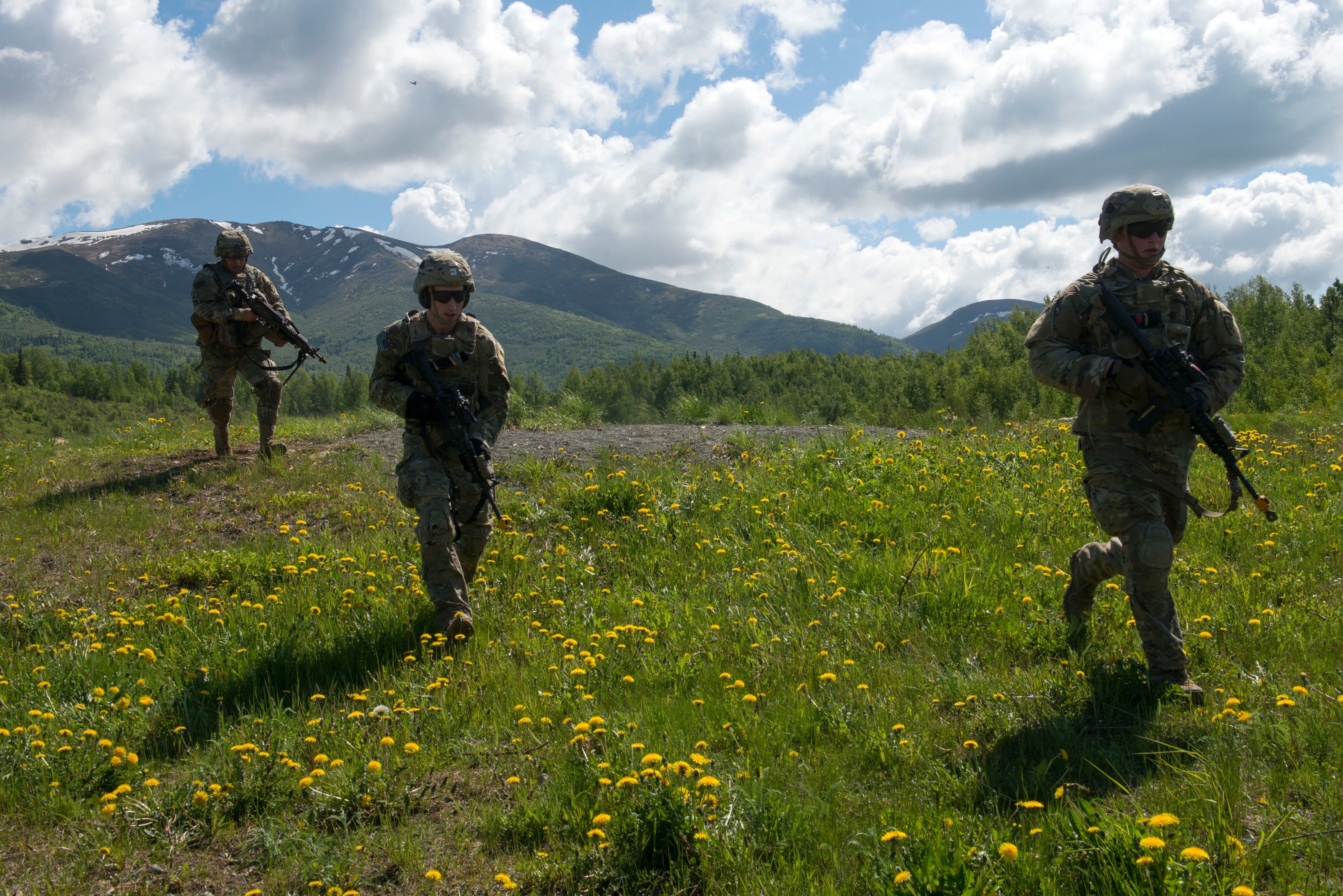Newly promoted staff sergeants may stay with their formations longer to better develop them into mid-level non-commissioned officers as the sergeant major of the Army’s senior enlisted council looks for ways to build NCOs.
Right now, especially within the units under Army Forces Command, many sergeants who get promoted to staff sergeant leave their formation almost immediately, according to Sgt. Maj. Wardell Jefferson, sergeant major for the deputy chief of staff of the Army’s G-1.
“What we’re trying to look at, is possibly, once that individual gets promoted to staff sergeant, we stabilize them in [their] formation and allow [them] to get that key developmental experience," Jefferson said at the Association of the U.S. Army’s annual gathering on Oct. 16.
“So when they go off to be a drill sergeant or a recruiter, they’ve already met their core competencies within their career management field," Jefferson added.
Army leadership says that keeping soldiers in place longer after being promoted will help develop better NCOs, and it’s similar to what the service does with its captains on the officer side of the force.
“They stay a captain for a pretty long period of time, but during that time, they’re getting developed so when they go out and they have to lead soldiers, they’re prepared,” Jefferson said. “Right now, our staff sergeants — not all of them, but the majority of them — are not ready to do that.”
Jefferson said he “always thought that officers did it right” with career development, but the enlisted force is hampered by its massive size, he noted.
The active component has about 400,000 enlisted soldiers. Army Human Resources Command assignment professionals manage an average of about 2,500 individuals each, according to Jefferson.

That makes its difficult to replicate for enlisted soldiers the level of talent management that officers receive. The implementation of the Integrated Personnel and Pay System, or IPPS-A, will assist that by automating some aspects of personnel management.
The Army is also looking at potentially instituting an NCO special assignment battery test.
“What that’s going to do is test an individual’s abilities to see where they’d better serve. Maybe in the future they’d become a drill sergeant," Jefferson said. “Or, based off their test results, they need to go be a recruiter.”
The service also wants to track enlisted soldiers’ knowledge, skills and behaviors, something already on the table for officers thanks to the Assignment Interactive Module 2.0 marketplace. That’s an online system that essentially allows officers and their prospective units to voice preferences to one another.
“In the future, we’re looking to do that for the enlisted force too," Jefferson said.
He added that the Army is working to identify which knowledge, skills and behaviors are needed for various duties to help build that future enlisted marketplace.
Human Resources Command is currently running an enlisted marketplace pilot for the 19D cavalry scout and 19K armor crewman career fields, according to Jefferson.
RELATED

“As we continue to evolve, that’s going to open up to more CMFs [Career Management Fields] throughout this pilot,” he added. “Hopefully by 2021, it will be opened up to all CMFs.”
Most of the talent management initiatives put in place so far have been lobbed at officers.
“Our efforts so far have been focused on leaders, specifically officers, but I want to be very clear that 21st century talent management and taking care of people extends to all of our people,” Army Chief of Staff Gen. James McConville said at the Association of the U.S. Army’s annual gathering on Oct. 15.
“After we prototype and test these programs with our officers and make sure we have them right, we will expand them to our enlisted soldiers," he added.
But the good news is that it’s easier to change policies, which govern most of the enlisted force, than it is to change laws, which govern officers.
Some changes have been made on the enlisted side already, such as the NCO evaluation board, which moved the Army away from promoting based on seniority and toward promoting based on merit.
Kyle Rempfer was an editor and reporter who has covered combat operations, criminal cases, foreign military assistance and training accidents. Before entering journalism, Kyle served in U.S. Air Force Special Tactics and deployed in 2014 to Paktika Province, Afghanistan, and Baghdad, Iraq.




